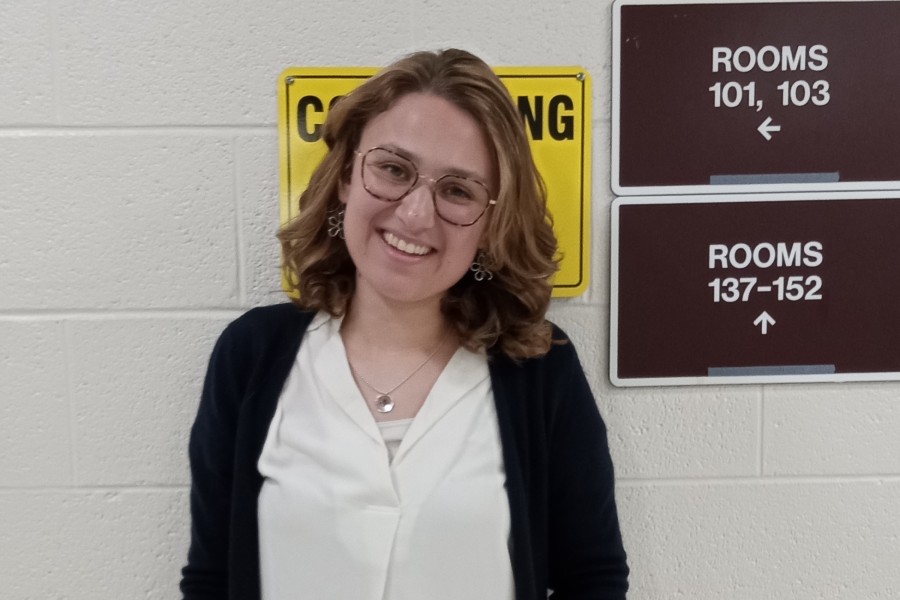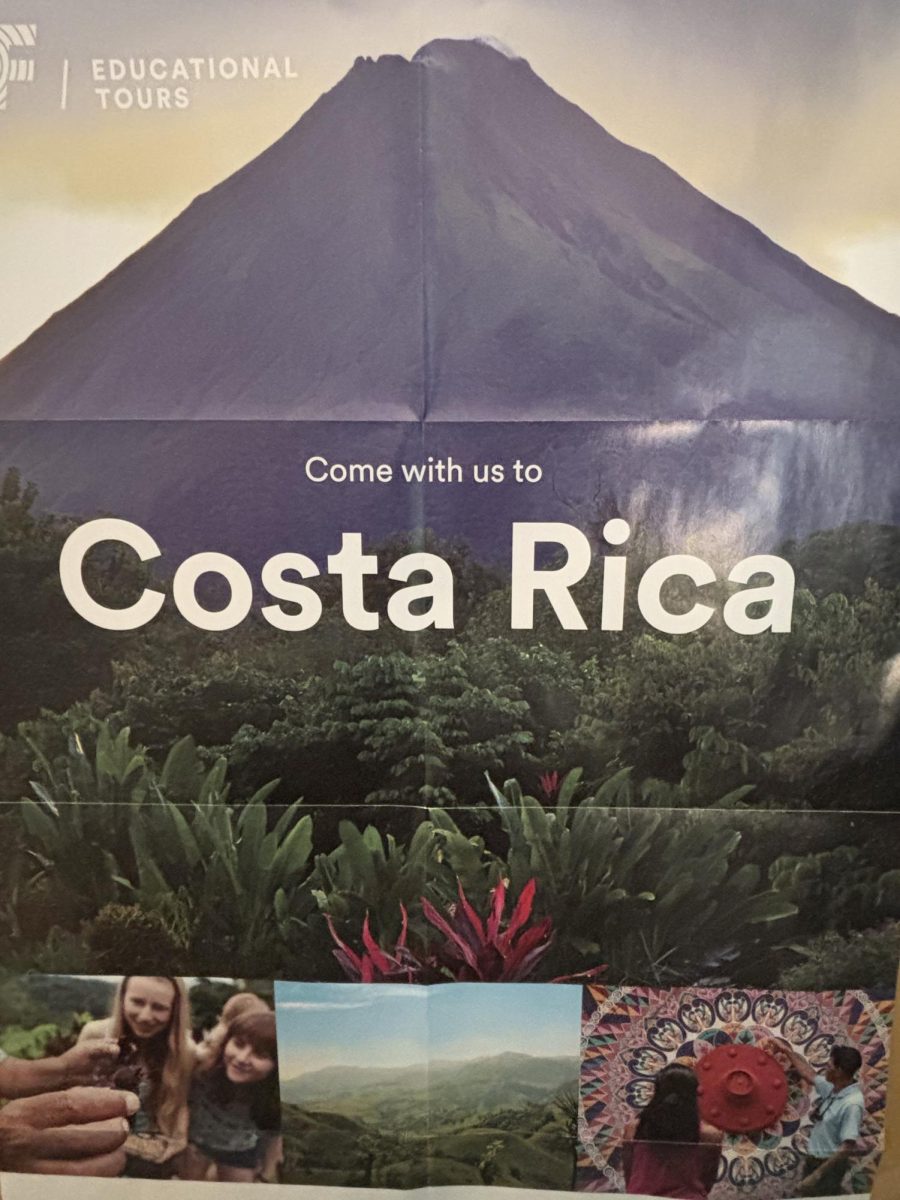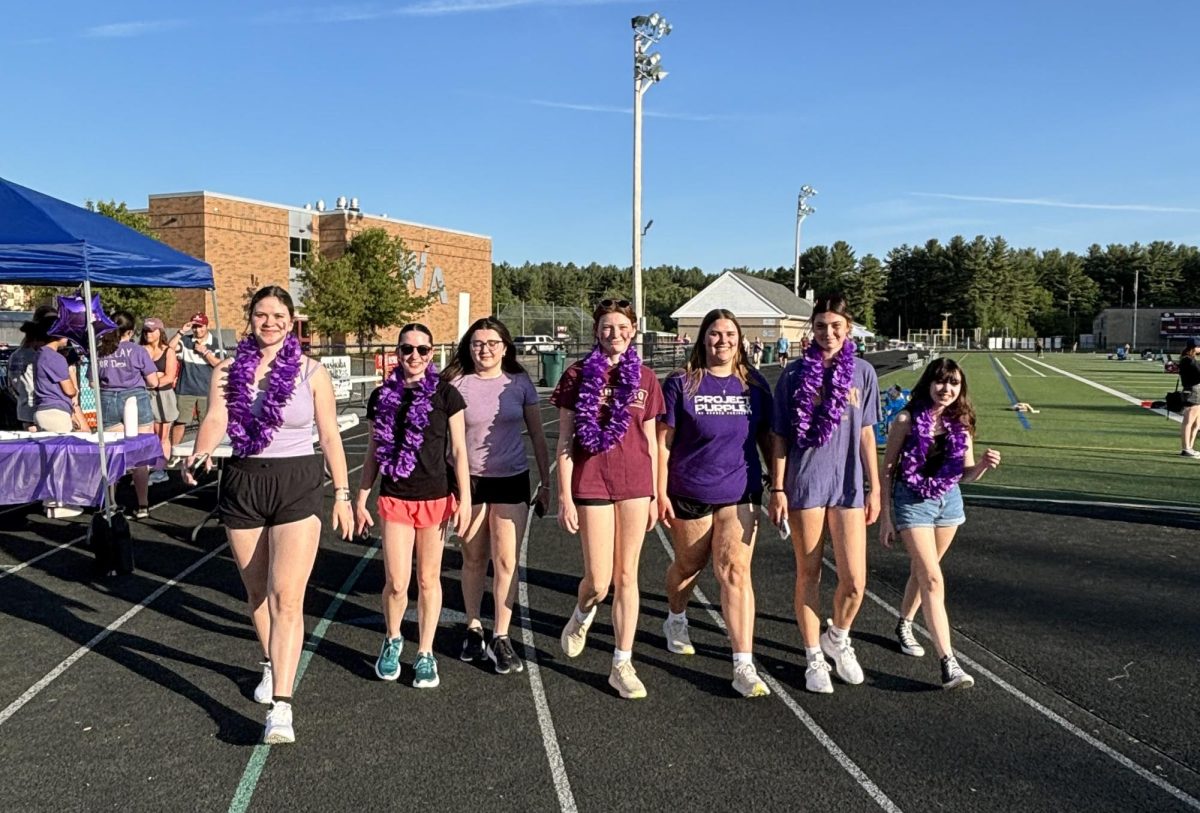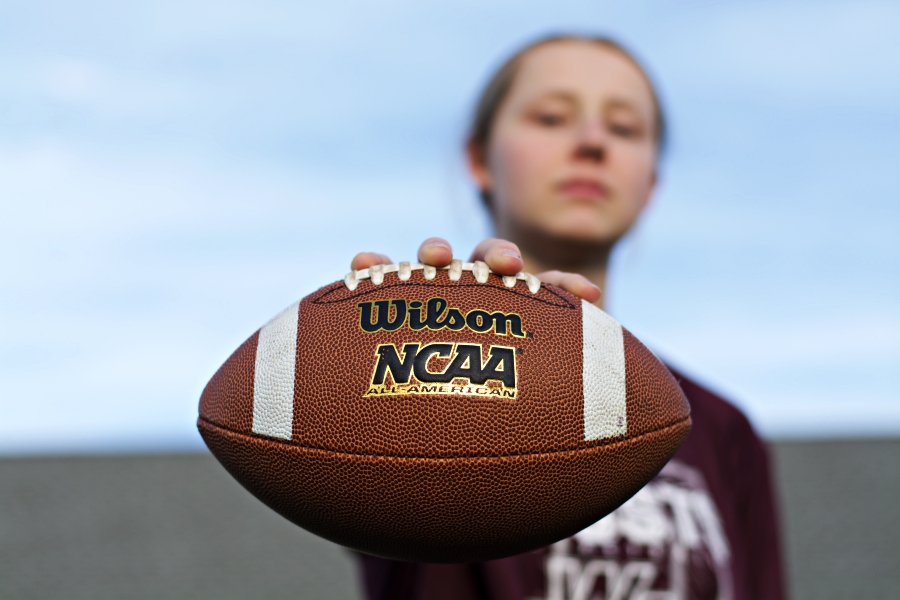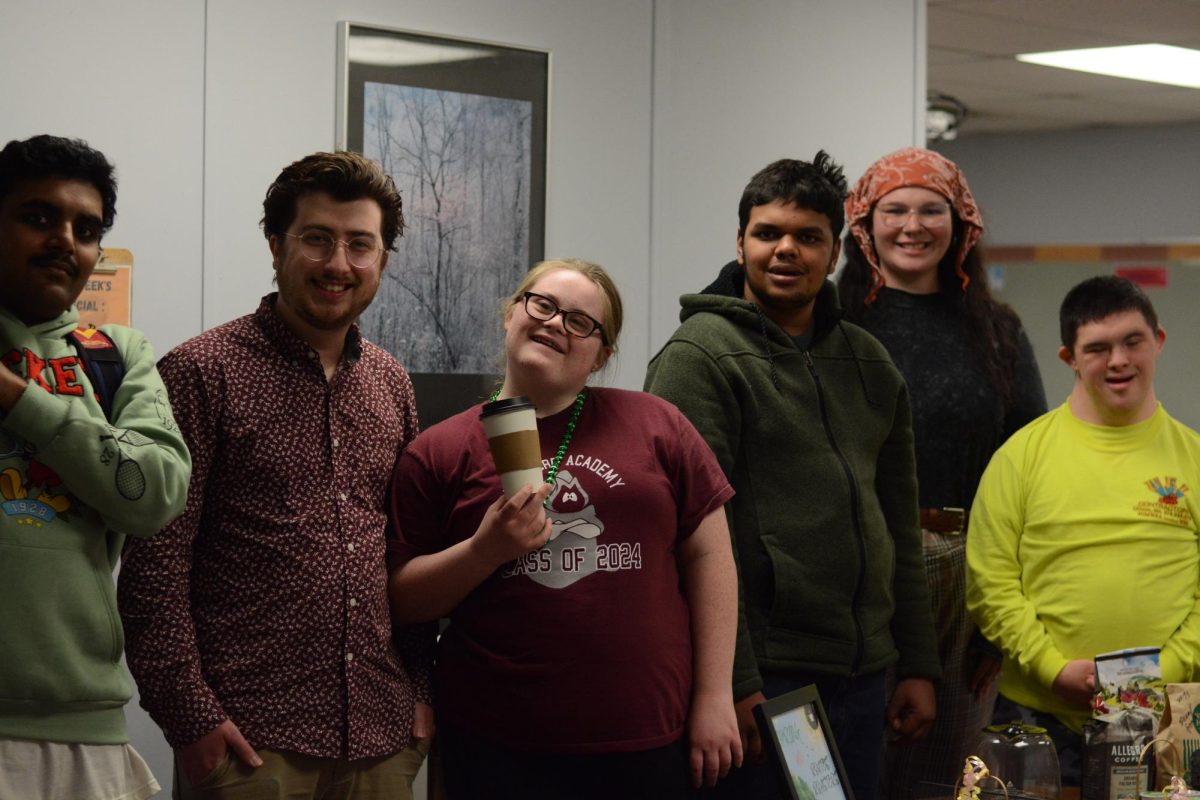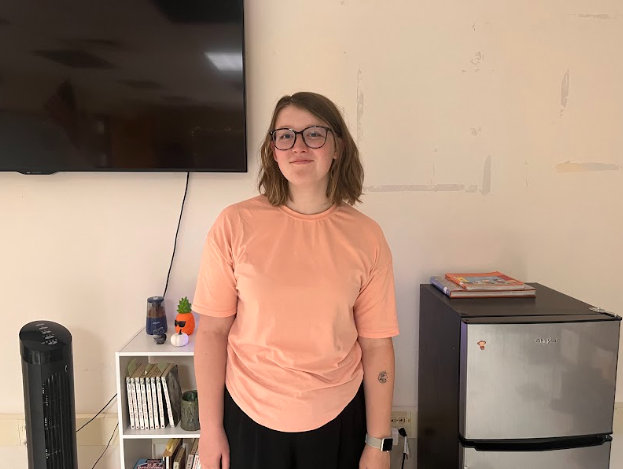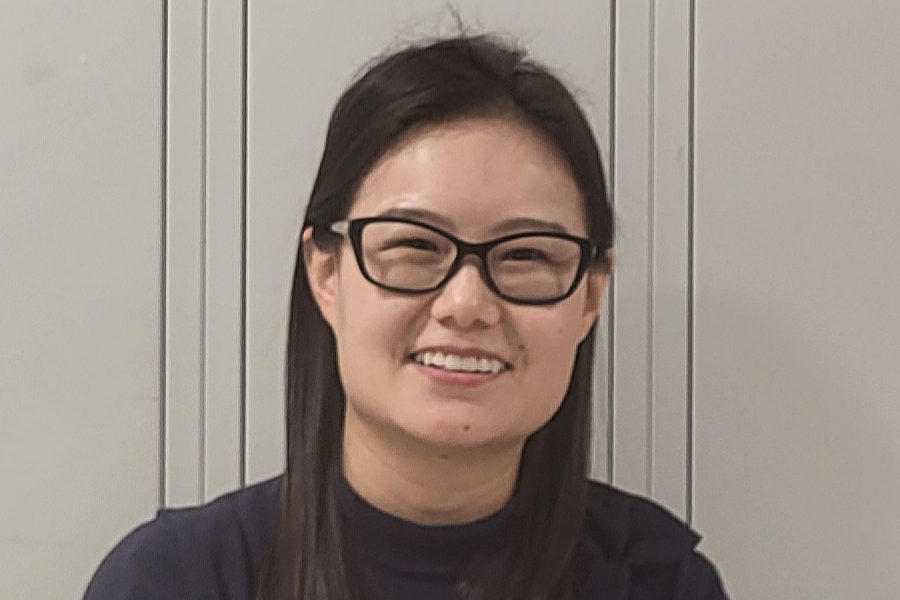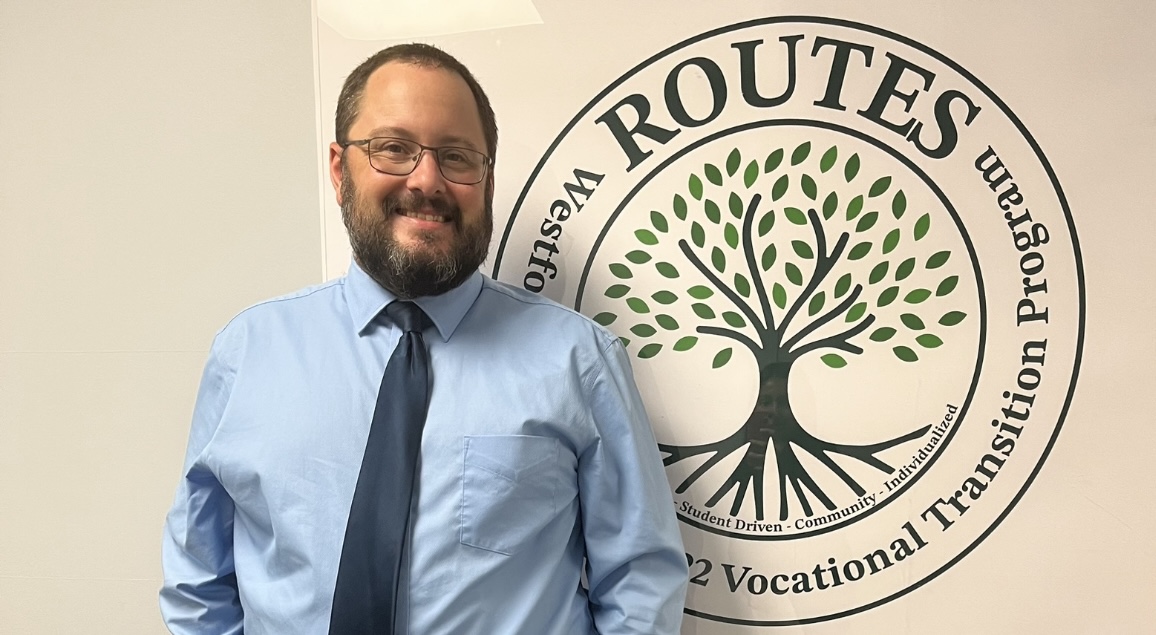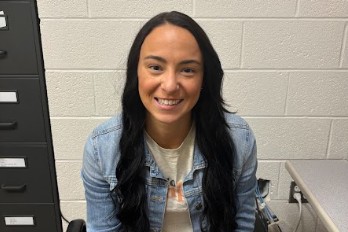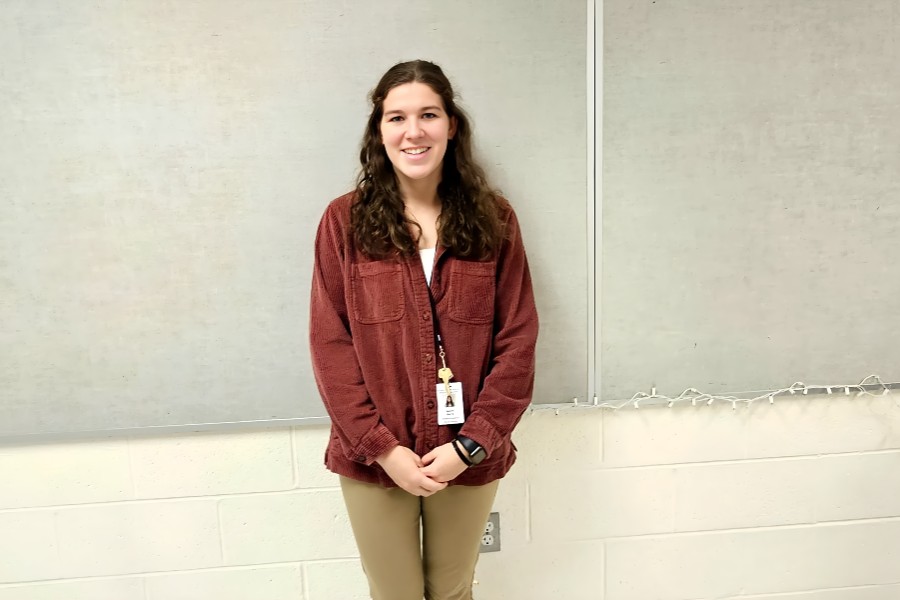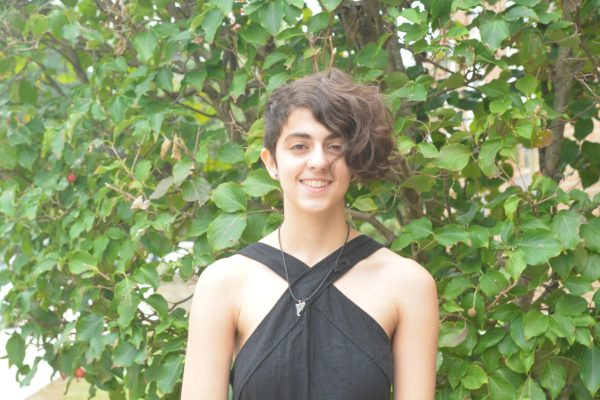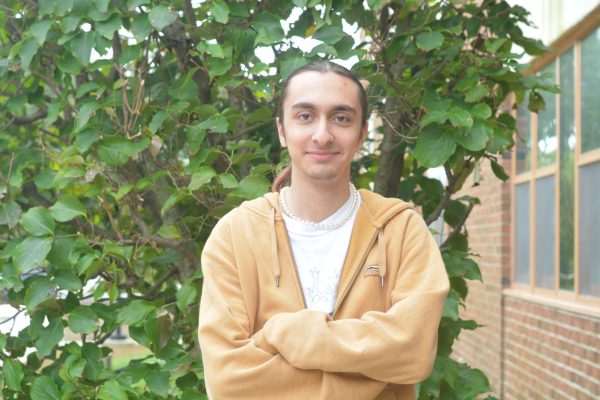After graduating from Wellesley College in May 2022 and finishing her student teaching last year, Olivia Fennell is taking over the position of teaching Latin and advising the knitting club at WA. Fennell is teaching during Mrs. Bjorkman’s year away from the school. Fennell is very passionate about Latin and the classical world, and is excited to bring that to WA.
Q: What made you decide to study Latin?
A: I actually took it in high school just because it sounded interesting and fun, and so I went for it and I really enjoyed it. I continued [it in college], and then when I got to read authentic Latin, I started falling in love with it. […] [I] ended up majoring in it. The professor was amazing and the things we got to read just really blew my mind in terms of how artistic they were with the language and getting to study the history more in depth and just see things from the past that I wouldn’t have been exposed to otherwise.
Q: Do you speak any other languages?
A: No, I don’t. I did some Spanish in high school also, which was really fun and cool to see the differences between Latin and other spoken languages. I love how it connects to different things. So that was fun, but I haven’t done any [other languages] since high school.
Q: Do you plan on learning more languages?
A: I would love to learn more! I find that languages are addictive.
Q: What made you decide to be a teacher?
A: I’ve actually always wanted to teach since I was really little. I had no idea what I wanted to teach, I just knew that I wanted to teach. So I pursued it. Then I got to actually work with students and it was so much fun, […] I just wanted to keep going. In college I studied education which is really neat to get more of the theoretical side of it and learn about the theories behind the subject. Then getting to put it into practice has been a whole other experience and another learning curve. I love the thrill of everyday being different and to share this material with students and learn more about it with them.
Q: What does your teaching style look like? Do you teach in a unique style? For example, do you use project based learning?
A: Good question! I will say, I don’t think I’ve had enough time teaching to really have my own unique style yet. But, I have really enjoyed getting to watch different teachers and see what they do, and try to incorporate a little bit from different people. I’ve seen teachers trying to do exploration activities, and I’ve tried that, and it’s been really fun. Or I’ve watched some teachers who are really good at running games in their classroom, and we’ve tried some of those. I think I’m trying to find what my exact style is.
Q: What’s your favorite part of teaching so far, other than the students?
A: I really enjoy hearing the questions that students come up with, because I think they push me into thinking of a new way to approach a topic, if something’s not making sense [to a student] yet. It’s awesome to me [to see] that gem that’s going to make it click with another person [just] like it might be clicking with me. But that doesn’t mean it’s resonating with someone else. So it’s really fun to see where we are different and how we can make this topic bigger or more connected than it already is. I also love hearing what students are curious about.
Q: Have you worked at other schools before?
A: I worked at a temple. I taught a visual arts program [and] it was to younger students, fourth and fifth graders. They kept me on my toes for sure! It was a very different experience, but it was cool to see the contrast of what developmental stages students were at and what resonated with them. Then I did my student teaching at Newton North last year, I was working with high schoolers.
Q: As per tradition, we have to ask this, because all the Latin teachers ask the Latin students this every year: What is your favorite word in Latin?
A: I love the word animus [which means] spirit, soul and mind, because I love the idea that your soul is connected to your mind. [But] there’s so many that I love.
Q: What do you like best about Roman culture and history?
A: I’m going to go around the question a bit. I love that we can look at things from the past and ways that people did things in order to think about and compare and contrast with the present. There’s something so cool to me about how tangible some of this evidence is, and that we get to really read words that were written so long ago. They might have a slightly different meaning, association, or interpretation based on what we’re seeing in our own lives, but they can still have a lot of meaning and teach [us] something.
Q: How has your WA experience been so far?
A: WA has been wonderful so far! It’s been really fun to meet the other teachers and to meet the students because everyone who I’ve met has a clear love for what they’re doing, [as well as an] enthusiasm about learning. I think that’s incredibly valuable.
Q: You’re taking up the knitting club after school, which is perfect because Mrs. Bjorkman was in charge of the knitting club. Was that intentional? And what’s your favorite thing you’ve knitted?
A: It was not intentional! It was just a really great coincidence that we were both really excited about [knitting]! I just finished my first sweater, and I’m really proud of it because it was something [I had never knitted before and] I really wanted to learn how to do it.
Q: What else do you like to do in your free time?
A: I love doing artistic things, really anything crafty and hands on. I’m trying to learn how to cook, which has had many failed attempts, but I’m working on it. I [also] love to explore, so going for walks in new neighborhoods, being in nature, [and other] things like that I really enjoy. Those are some of the big ones, [as well as] just spending time with people I enjoy.
Q: What’s your favorite thing to cook?
A: My go to is chocolate chip cookies. It’s something my family always did growing up, so it’s one of those recipes that’s very close to my heart and feels like home.
Q: What do you think the future of Latin is going to look like?
A: [That’s a] great question because it’s something that is definitely being debated. And it’s something that I think is really important, because it’s a subject that I love so much. But I don’t just love it because I think the literature is amazing or because I personally really connect with these authors. I also think it genuinely can teach us skills that benefit students. Not every student studying wants to become a classicist or translator or any of those things, and that’s great because that would be a very narrow group of thinkers. But I do think that the subjects can teach any student skills that they can use in whatever they choose to pursue. Things like translating include looking at all the pieces and breaking it down into parts and thinking about how they relate, and what evidence do we have here and what parts are missing? Or, what do we interpret in one way that may have been interpreted differently in the past? I think it asks questions that we can use in everything. So, I think my answer to that is: I don’t really know how that will be taught in the future, especially because there’s so much new stuff that’s always coming up, and different teachers are presenting different ideas. But I do hope that, however it is taught moving forward, it keeps those same skills.

